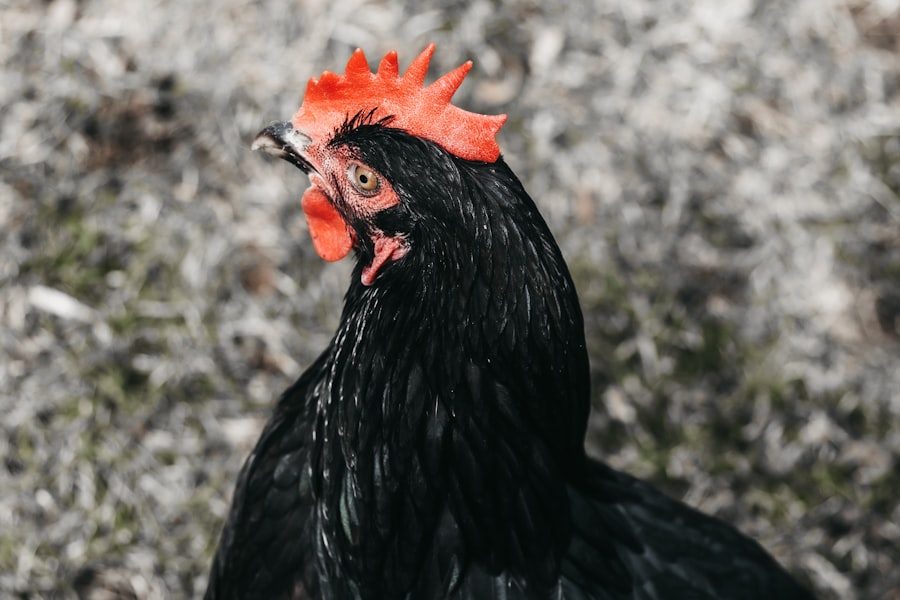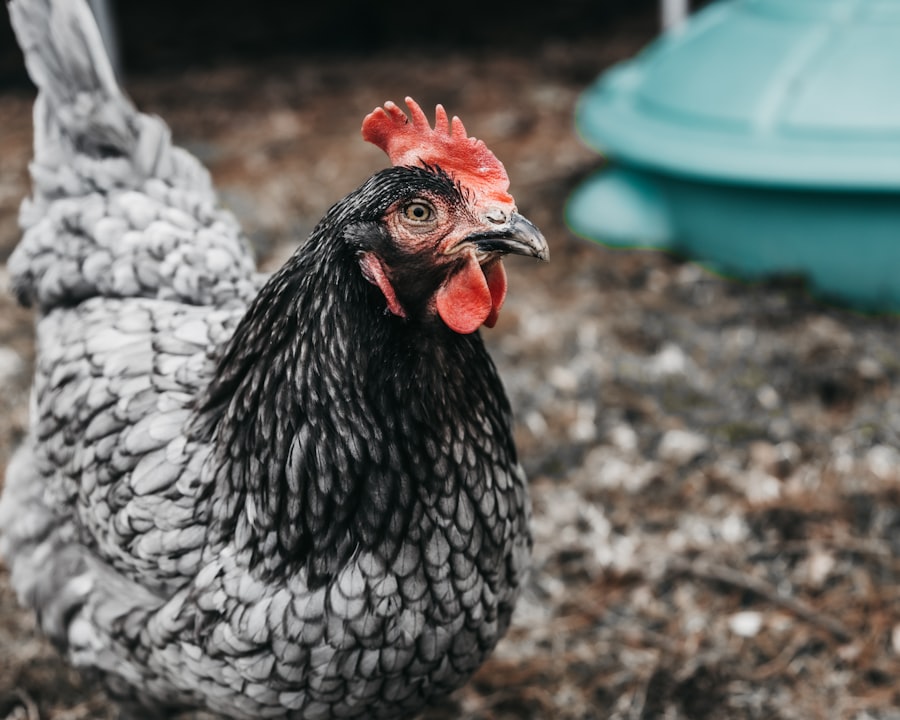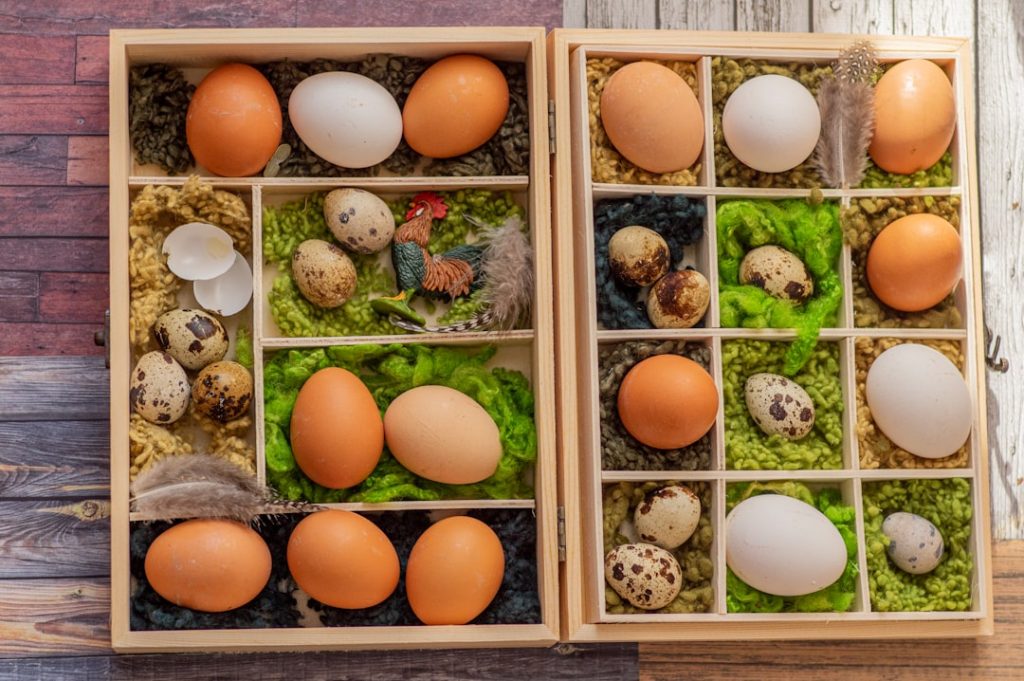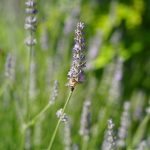When selecting a location for a chicken pen, several key factors should be considered. Proper drainage is crucial to prevent flooding and maintain a dry environment, which is essential for chicken health. The chosen site should be easily accessible for daily care and egg collection.
Predator protection is another vital aspect. A secure, fenced area or a location with natural barriers can help safeguard chickens from potential threats. Proximity to the owner’s residence can facilitate monitoring and care of the flock.
Aesthetic considerations may also play a role in site selection. Many chicken keepers prefer a location that integrates well with the surrounding landscape. The ideal chicken pen location will balance practical requirements such as drainage and security with the owner’s specific needs and preferences.
Table of Contents
- 1 Building a Secure and Predator-Proof Enclosure
- 2 Providing Adequate Space and Shelter for the Chickens
- 3 Feeding and Watering the Chickens
- 4 Maintaining Cleanliness and Hygiene in the Pen
- 5 Monitoring the Health and Well-being of the Chickens
- 6 Allowing for Regular Exercise and Enrichment Opportunities
- 7 FAQs
- 7.1 What are the benefits of keeping chickens in a pen?
- 7.2 What should be considered when building a chicken pen?
- 7.3 What should be included in a chicken pen?
- 7.4 How can I keep the chicken pen clean?
- 7.5 What should I feed my chickens in a pen?
- 7.6 How can I protect my chickens from predators in a pen?
Key Takeaways
- Choose a location for the pen that is well-drained, away from potential predators, and provides adequate sunlight and shade for the chickens.
- Build a secure enclosure with strong fencing and a predator-proof design to keep the chickens safe from potential threats.
- Provide enough space for the chickens to move around freely and shelter to protect them from extreme weather conditions.
- Ensure the chickens have access to a balanced diet and clean water at all times to support their health and well-being.
- Regularly clean the pen and maintain good hygiene to prevent the spread of diseases and keep the chickens healthy.
Building a Secure and Predator-Proof Enclosure
Fencing and Perimeter Security
First and foremost, you’ll want to ensure that the pen is surrounded by a sturdy fence that is tall enough to prevent predators from jumping over or digging under it. Additionally, you may want to consider adding a wire mesh apron around the perimeter of the pen to further deter digging predators.
Predator-Proof Coop Construction
In addition to a secure fence, it’s important to make sure that the coop itself is predator-proof. This means using strong materials for construction, such as heavy-duty wire mesh and solid wood, and ensuring that there are no gaps or openings that could allow predators to gain access. You may also want to consider adding locks or latches to the doors and windows of the coop to prevent unwanted entry.
Regular Maintenance and Inspection
Finally, it’s important to regularly inspect the enclosure for any signs of wear and tear or potential weak spots that could compromise its security. By taking these steps to build a secure and predator-proof enclosure for your chickens, you can help to ensure that they are safe from harm and can enjoy a peaceful and secure living environment.
Providing Adequate Space and Shelter for the Chickens

When it comes to providing adequate space and shelter for your chickens, there are several key considerations to keep in mind. First and foremost, it’s important to ensure that your chicken pen is large enough to accommodate the number of birds in your flock. Chickens need plenty of space to move around, stretch their wings, and engage in natural behaviors such as scratching and dust bathing.
As a general rule of thumb, you should aim to provide at least 2-3 square feet of space per bird inside the coop, and at least 8-10 square feet per bird in the outdoor run. In addition to space considerations, it’s important to provide your chickens with adequate shelter from the elements. This means ensuring that the coop is well-insulated and ventilated to provide protection from extreme temperatures, as well as providing access to shade and shelter in the outdoor run.
You may also want to consider adding features such as perches and nesting boxes inside the coop to give your chickens additional space and comfort. Finally, it’s important to regularly assess the condition of the shelter and make any necessary repairs or improvements to ensure that it continues to provide adequate protection for your flock. By providing your chickens with plenty of space and shelter, you can help to ensure that they are comfortable, healthy, and able to thrive in their environment.
Feeding and Watering the Chickens
Feeding and watering your chickens is an essential part of caring for your flock, and there are several key considerations to keep in mind when it comes to providing them with the nutrition and hydration they need. First and foremost, it’s important to provide your chickens with a balanced diet that meets their nutritional requirements. This typically includes a commercial feed that is specifically formulated for chickens, as well as access to fresh fruits and vegetables, grains, and other natural treats.
In addition to providing a balanced diet, it’s important to ensure that your chickens have access to clean, fresh water at all times. This means regularly checking and refilling their waterers to ensure that they have an adequate supply of hydration. You may also want to consider adding electrolytes or vitamins to their water during times of stress or extreme weather conditions to help support their overall health and well-being.
Finally, it’s important to monitor your chickens’ feeding and drinking habits and make adjustments as needed based on their individual needs. By providing your chickens with a balanced diet and access to clean water, you can help to ensure that they are healthy, happy, and thriving in their environment.
Maintaining Cleanliness and Hygiene in the Pen
Maintaining cleanliness and hygiene in your chicken pen is essential for the health and well-being of your flock. There are several key steps you can take to ensure that their living environment remains clean and sanitary. First and foremost, it’s important to regularly clean out the coop and remove any soiled bedding or droppings.
This will help to prevent the buildup of bacteria and parasites that can pose a threat to your chickens’ health. In addition to regular cleaning, it’s important to provide your chickens with clean bedding material on a regular basis. This will help to keep them comfortable and dry, as well as reduce the risk of bacterial or fungal infections.
You may also want to consider adding diatomaceous earth or other natural pest control methods to the bedding material to help prevent infestations of mites or lice. Finally, it’s important to regularly inspect the pen for any signs of pests or disease, such as rodents or wild birds that could pose a threat to your flock. By taking these steps to maintain cleanliness and hygiene in the pen, you can help to ensure that your chickens have a safe and healthy living environment.
Monitoring the Health and Well-being of the Chickens

Observing Behavior and Physical Appearance
Monitoring the health and well-being of your chickens is an essential part of caring for your flock. There are several key signs and symptoms that you can watch for to assess the overall health of your birds. This includes monitoring their behavior, such as changes in appetite or activity level, as well as observing their physical appearance for any signs of injury or illness.
Conducting Routine Health Checks
In addition to regular observation, it’s important to conduct routine health checks on your chickens, such as checking their eyes, comb, and vent for any signs of abnormality. You may also want to consider implementing a regular deworming schedule and vaccinations as recommended by your veterinarian to help prevent common health issues.
Seeking Veterinary Care and Preventing Disease
Finally, it’s important to seek veterinary care if you notice any signs of illness or injury in your flock. Early intervention can help prevent the spread of disease and improve the chances of successful treatment. By monitoring the health and well-being of your chickens on a regular basis, you can help ensure that they receive the care they need to stay healthy and thrive.
Allowing for Regular Exercise and Enrichment Opportunities
Allowing for regular exercise and enrichment opportunities is an important part of caring for your chickens’ physical and mental well-being. Chickens are naturally active animals that enjoy scratching, pecking, dust bathing, and exploring their environment. Providing them with opportunities for exercise and enrichment can help prevent boredom and reduce stress.
One way to encourage exercise is by providing ample space in the outdoor run for your chickens to move around freely. You may also want to consider adding features such as perches, ramps, or platforms for them to climb on or roost. Additionally, providing access to natural materials such as branches, logs, or straw bales can give them opportunities for pecking and scratching.
In addition to physical exercise, it’s important to provide enrichment opportunities for your chickens’ mental stimulation. This can include providing them with toys or objects such as hanging cabbage or treat balls filled with mealworms or other natural treats. You may also want to consider rotating their outdoor environment or adding new features periodically to keep things interesting.
By allowing for regular exercise and enrichment opportunities, you can help ensure that your chickens remain active, engaged, and happy in their environment. This can contribute to their overall health and well-being while also providing you with the satisfaction of knowing that you are providing them with a high quality of life.
If you’re looking for more information on how to keep chickens in a pen, you might want to check out this article on A-Frame Chicken Coop from PoultryWizard.com. This article provides valuable insights into building a suitable coop for your chickens, which is essential for keeping them safe and healthy.
FAQs
What are the benefits of keeping chickens in a pen?
Keeping chickens in a pen provides a safe and secure environment for the chickens, protects them from predators, and helps to keep them contained in a specific area.
What should be considered when building a chicken pen?
When building a chicken pen, it is important to consider the size of the pen, the materials used, ventilation, and protection from predators. The pen should also have a secure door and be easy to clean.
What should be included in a chicken pen?
A chicken pen should include a shelter for the chickens to roost and lay eggs, a feeding and watering system, and space for the chickens to move around and scratch.
How can I keep the chicken pen clean?
To keep the chicken pen clean, it is important to regularly remove droppings, replace bedding, and clean the feeding and watering systems. Good ventilation and proper drainage can also help to keep the pen clean.
What should I feed my chickens in a pen?
Chickens in a pen should be fed a balanced diet that includes a combination of commercial chicken feed, grains, and kitchen scraps. It is important to provide access to fresh water at all times.
How can I protect my chickens from predators in a pen?
To protect chickens from predators in a pen, it is important to use secure fencing, cover the pen with wire mesh, and provide a secure shelter for the chickens to roost at night. It is also important to regularly check for signs of predators and reinforce any weak spots in the pen.
Meet Walter, the feathered-friend fanatic of Florida! Nestled in the sunshine state, Walter struts through life with his feathered companions, clucking his way to happiness. With a coop that’s fancier than a five-star hotel, he’s the Don Juan of the chicken world. When he’s not teaching his hens to do the cha-cha, you’ll find him in a heated debate with his prized rooster, Sir Clucks-a-Lot. Walter’s poultry passion is no yolk; he’s the sunny-side-up guy you never knew you needed in your flock of friends!







